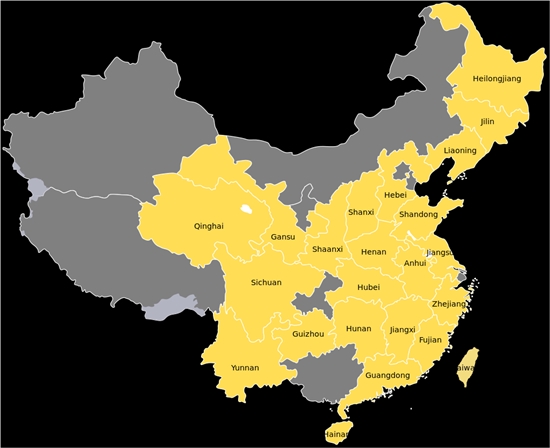
Did the senior human rights official that the U.S. appointed as special coordinator for Tibetan issues in 2020, a post that had not been filled since 2017, accomplish anything to help Tibetans during his brief time in office?
Perhaps the job exists at all only as a symbolic gesture of protest against how the Chinese government treats Tibetans. The appointment seemed significant to the Chinese. Zhao Lijian, Chinese foreign ministry spokesman, huffed at the time that “Tibet affairs are China’s internal affairs that allow no foreign interference.” He also said: “People of all ethnic groups in Tibet are part of the big family of the Chinese nation, and since its peaceful liberation, Tibet has had prosperous economic growth.”
China conquered Tibet by force.
In 2021, Uzra Zeya got the job of special coordinator for Tibetan issues. In a press statement, Secretary of State Antony Blinken set forth some of Zeya’s duties.
Special Coordinator Zeya will coordinate U.S. government policies, programs, and projects concerning Tibetan issues…. [S]he will promote substantive dialogue, without preconditions, between the Government of the People’s Republic of China (PRC) and the Dalai Lama, his representatives, or democratically elected Tibetan leaders in support of a negotiated agreement on Tibet. She will promote respect for the human rights and fundamental freedoms of Tibetans, including their freedom of religion or belief, and will support efforts to preserve their distinct historical, linguistic, cultural, and religious heritage. Special Coordinator Zeya will further support U.S. efforts to address the humanitarian needs of Tibetan refugees and diaspora communities, including those in the United States who have faced threats and intimidation instigated by the PRC.
Zeya may have done something concrete to help Tibetans living in the United States who are facing threats and intimidation instigated by the PRC. But she cannot offer more than moral support to the Tibetans in Tibet whose rights China routinely violates. On various occasions, she has offered that moral support.
When she was appointed, Zhao Lijian, Chinese foreign ministry spokesman, again complained about the “foreign interference.” Newsweek relayed his statements (December 22, 2021).
Tibetan affairs are purely China’s domestic affairs and brook no interference by any foreign force. The U.S.’s designation of a so-called ‘Special Coordinator for Tibetan Issues’ interferes in China’s internal affairs. We firmly oppose it and have never recognized it.”
Employing similar arguments related to the Uyghur population in Xinjiang, Zhao said Tibet has been living in harmony and prosperity since its “peaceful liberation” more than 70 years ago.
“Tibetans lead a happy life. There is no need for certain Americans to worry about them, and even less room for their lecturing,” said Zhao.
The United States also has a special coordinator for Uyghur issues. But the U.S. does not seem to have special coordinators for Inner Mongolia, Heilongjiang, Jilin, Liaoning, Hebei, Shandong, Shanxi, Qinghai, Gansu, Ningxia, Shaanxi, Henan, Anhui, Jiangsu, Sichuan, Chongqing, Hubei, Guizhou, Hunan, Jiangxi, Zhejiang, Fujian, Yunnan, Guangzi, Guangdong, or Hainan.
Residents of Tibet and Xinjiang and a few other places often face much worse oppression—such as imprisonment essentially for walking around as a member of the “wrong” ethnocultural group—than many people living in many other provinces. But all these other provinces are also in China, the government of which tries to control everyone everywhere within China and more than a few people outside of China.





